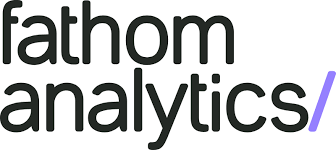In the ever-changing web analytics market, Google Analytics has long ruled supreme. However, as privacy concerns rise and customers demand greater control over their data, it is time to look beyond the familiar giant and consider new web analytics alternatives.

Lets look into lesser-known online analytics solutions that provide unique features, more privacy, and customizable possibilities.
1. Matomo (formerly Piwik)

Overview
Matomo is an open-source web-analytics software it allows website owners to collect and analyze data while retaining complete control. Here’s why it’s worth your attention:
Features
- Self-Hosted: Unlike Google Analytics, Matomo allows you to host the analytics on your own server. Thus giving you more control over privacy and ensuring complete control over data.
- Customizable Dashboards: Gives ability of showing tailored dashboards to your specific needs only. It displays only the metrics that matters to you.
- GDPR Compliance: Matomo does respects user privacy and it provides tools for compliance with the General Data Protection Regulation (GDPR).
- Real-Time Tracking: It helps monitor user behavior in real-time, from page views to conversions.
- E-commerce Analytics: It also helps into diving deep into e-commerce platform performance. Including abandoned shopping carts on your website as well as product popularity.
Privacy Considerations
Matomo’s attitude towards privacy is admirable. It anonymizes IP addresses, honors “Do Not Track” requests, and gives users the option to opt out of tracking.
Customization Options
- Plugins: The plugins in it helps extend Matomo’s functionality. You can choose from heatmaps to A/B testing, and many more.
- Themes: Customizable look and feel of your analytics interface with help of themes.
2. Fathom Analytics

Overview
Fathom takes minimalism to the core. It’s a compact, privacy-focused analytical tool that prioritizes key metrics without jeopardizing user privacy or website security.
Features
- Minimalist Interface: Fathom’s dashboards do provide a clean and distraction-free experience.
- No Cookies or Tracking Scripts: Wave goodbye to unwanted cookies & scripts.
- Real-Time Data: Helps you get data insights without delay.
- Geolocation Tracking: Track and understand where your visitors originate from.
Privacy Considerations
Fathom will not collect personal data. Thus it makes it an excellent choice for privacy-conscious users.
Customization Options
- Custom Domains: You can use Fathom across multiple domains.
- Custom Goals: Defining your own conversion goals is easy with it.
3. Plausible Analytics

Overview
Plausible Analytics strives to be transparent, lightweight, and privacy-conscious. It’s ideal for individuals who want simple analytics without the clutter.
Features
- Simple Setup: Plausible’s setup process is a breeze.
- No Cookies or Personal Data: It adheres to core privacy principles.
- Visitor Metrics: Helps understand unique visitors, the bounce rates, and visitor’s referral sources.
- Page Performance: It also measures page load times.
Privacy Considerations
Plausible will not track individual users, ensuring complete privacy compliance.
Customization Options
- Embeddable Widgets: Gives ability to display analytics on your website.
- Custom Events: Allows you to track specific interactions.
Other Notable Open-Source Analytics Tools:
- Grafana: Grafana is an open-source data analytics tool that allows you to track and analyze metrics from several apps and databases. It is often used to visualize time-series data, create dashboards, and configure alerts.
- Redash: Redash is another prominent open-source data analytics application that enables businesses to become more data-driven. It lets users construct interactive dashboards, conduct SQL queries, and collaborate on data discovery.
- KNIME: KNIME is a visual workflow creation tool for sophisticated analytics and modeling. It’s ideal for data preprocessing, machine learning, and designing customized workflows.
- RapidMiner: RapidMiner is an open-source data science platform with a diverse set of tools for data preparation, modeling, and deployment. It is appropriate for predictive analytics, text mining, and developing machine learning models.
- RStudio: RStudio is an integrated development environment (IDE) for R, a widely used statistical programming language. It is used by data analysts and statisticians to manipulate data, visualize data, and simulate statistical models.
- Apache Spark: Apache Spark is a fast and versatile engine for big data processing. It is best suited for large data analytics, machine learning, and real-time stream processing.
- Pentaho: Pentaho provides an array of business intelligence products, such as reporting, data integration, and analytics. Organizations use it for data warehousing, ETL (Extract, Transform, and Load), and reporting.
The Bottom Line
Remember to look into these tools based on your specific needs and preferences. Each tool has advantages, so select the one that best fits your analytics goals.
Consider your priorities while looking into alternative online analytics tools: data ownership, privacy, and customization. Whether you choose Matomo’s extensive features, Fathom’s simplicity, or Plausible’s transparency, keep in mind that the analytics landscape is constantly changing. Accept the change and make informed decisions to ensure your website’s success.

